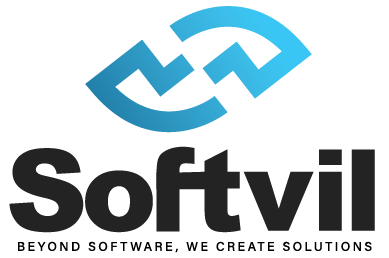Offshore collaboration has become increasingly prevalent, with organizations seeking software outsourcing partners to enhance efficiency and competitiveness. This dynamic environment brings together diverse teams across geographical boundaries, necessitating a nuanced understanding of cultural nuances. The significance of cultural intelligence in these global partnerships cannot be overstated, as it plays a pivotal role in ensuring seamless communication, collaboration, and ultimately, project success.
This introduction aims to provide a brief overview of offshore collaboration, highlighting its relevance in the context of software outsourcing partnerships. As businesses navigate through diverse cultural landscapes, the ability to bridge cultural divides becomes a strategic imperative. Cultural intelligence encompasses not only the awareness of cultural differences but also the skills and adaptability required to leverage these differences positively. In the realm of software development and outsourcing, where collaboration is key, a high level of cultural intelligence can significantly impact the quality of deliverables, team cohesion, and overall project outcomes. This article delves into the multifaceted aspects of cultural intelligence, examining its importance in the intricate tapestry of global partnerships and shedding light on effective strategies for navigating the challenges inherent in offshore collaboration.
Understanding Cultural Intelligence in Offshore Collaboration

A profound comprehension of cultural intelligence is essential for fostering successful partnerships with software outsourcing partners in offshore collaboration.
Definition and Components of Cultural Intelligence
Cultural intelligence refers to the ability to adapt and interact effectively across different cultures. It comprises three essential components: cognitive, emotional, and behavioural. The cognitive aspect involves understanding cultural norms, values, and communication styles. Emotional intelligence entails the capability to empathize with individuals from diverse backgrounds, while the behavioural component relates to the aptitude for adapting one’s behaviour in culturally sensitive ways.
Significance of Cultural Awareness in Business
Cultural awareness is a cornerstone of successful business interactions, especially in software outsourcing partnerships. It goes beyond recognizing disparities in language and customs; it encompasses a deep understanding of how cultural nuances influence decision-making, communication, and collaboration. A heightened cultural awareness facilitates smoother negotiations, enhances team dynamics, and mitigates potential misunderstandings. In the context of software development, where precision and effective communication are paramount, cultural intelligence becomes a catalyst for aligning diverse teams toward common goals. Acknowledging and valuing cultural differences not only fosters a harmonious work environment but also enriches the creative process, resulting in innovative solutions and successful outcomes in the complex landscape of global software outsourcing partnerships.
Navigating Cultural Divides with Software Outsourcing Partners

Offshore collaboration with software outsourcing partners introduces a myriad of challenges, primarily rooted in the identification of cultural divides and their subsequent impact on communication and collaboration.
Identification of Cultural Divides
Effectively navigating cultural divides begins with a comprehensive understanding of the nuances that distinguish diverse cultural landscapes. Recognizing disparities in communication styles, decision-making processes, and work approaches is imperative. Language barriers, varying time zones, and diverse work ethics further contribute to the intricate web of cultural divides that need to be identified for successful collaboration.
Impact on Communication and Collaboration
The impact of cultural divides on communication and collaboration cannot be overstated. Misinterpretations, misunderstandings, and differing expectations may arise, leading to delays, inefficiencies, and potential project disruptions. Effective communication strategies must be employed to bridge these gaps, emphasizing clarity and cultural sensitivity. Collaborative efforts may suffer without a conscious effort to address these challenges, resulting in diminished productivity and compromised project outcomes. Recognizing and proactively managing these cultural influences is crucial for establishing a cohesive and productive partnership with software outsourcing partners, ensuring that the collaborative efforts thrive despite the complexities introduced by diverse cultural contexts.
Leveraging Diverse Perspectives in Offshore Collaboration

In the dynamic landscape of offshore collaboration with software outsourcing partners, leveraging diverse perspectives is not just beneficial but a strategic imperative for innovation and success.
Strategies for Understanding Diverse Cultural Viewpoints
Understanding and appreciating diverse cultural viewpoints is a cornerstone for unlocking the full potential of collaboration. Employing strategies such as cross-cultural training, fostering open communication channels, and encouraging active listening can enhance awareness of varied perspectives. Cultural sensitivity workshops and regular feedback mechanisms provide platforms for team members to share their unique viewpoints, facilitating a deeper understanding of different cultural backgrounds.
Building a Culturally Inclusive Environment
Creating a culturally inclusive environment is pivotal for fostering collaboration and creativity. Establishing clear communication norms, celebrating diverse cultural festivals, and incorporating inclusive practices into daily operations contribute to an inclusive workplace culture. Emphasizing the value of diverse perspectives and recognizing cultural contributions encourages team members to bring their authentic selves to the collaborative process, ultimately enhancing creativity and problem-solving. In the context of software outsourcing partnerships, this inclusive approach not only strengthens team cohesion but also results in more robust and innovative solutions as diverse perspectives converge to tackle complex challenges.
Future Trends in Cultural Intelligence for Software Outsourcing Partnerships

As the landscape of global collaboration evolves, the future of cultural intelligence in software outsourcing partnerships is poised to witness significant advancements and transformative trends.
Emerging Technologies and Their Role in Bridging Cultural Gaps
Technological innovations, such as artificial intelligence (AI) and virtual reality (VR), are anticipated to play a pivotal role in bridging cultural gaps. AI-driven language translation tools and cross-cultural communication platforms will facilitate real-time understanding, breaking down language barriers. VR simulations may immerse team members in diverse virtual environments, offering immersive experiences that enhance cultural awareness and sensitivity.
Anticipated Developments in the Field of Cultural Intelligence
The field of cultural intelligence is expected to witness developments in personalized learning approaches. Tailored training programs using adaptive learning algorithms will address individual needs, enhancing cultural intelligence at a personalized level. Additionally, there will be a growing emphasis on the integration of cultural intelligence metrics into performance evaluations, acknowledging its strategic importance in successful software outsourcing partnerships. Collaborative platforms that facilitate cross-cultural teamwork and provide real-time analytics on cultural dynamics will become integral, allowing organizations and software outsourcing partners to proactively manage and leverage cultural diversity for optimal project outcomes. Embracing these future trends will be essential for staying ahead in the ever-evolving landscape of global collaboration with software outsourcing partners.
Conclusion
In essence, successful offshore collaborations with software outsourcing partners hinge on the mastery of cultural intelligence. Throughout this exploration, we have emphasized the importance of recognizing, understanding, and leveraging diverse cultural perspectives. The recap underscores the need to comprehend the components of cultural intelligence and the challenges presented by cultural divides in communication and collaboration.
Moving forward, a decisive call to action is imperative. Organizations must proactively invest in cultural intelligence training, cultivate inclusive environments, and embrace emerging technologies. Fostering cultural intelligence is not just a choice; it is a strategic imperative in the global marketplace. As businesses continue to engage in software outsourcing collaborations on a global scale, the cultivation of cultural intelligence stands as a linchpin for achieving harmonious and productive partnerships in this ever-evolving landscape.

